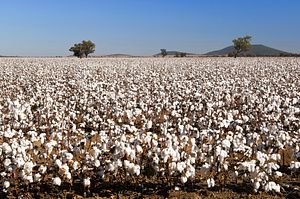Central Asia links:
Offshore Central Asia: Central Asia is sometimes portrayed as disconnected economically from the world but, the editors of a special issue of Central Asian Survey argue, “this assumption of Central Asia’s economic isolation is highly selective and largely inaccurate.” The collection of essays (three of which, plus the introduction, are miraculously free to all, for now at least) is well-timed as it focuses on offshore economic connections rather than traditional trade flows to demonstrate that, contrary to the assumption of isolation, Central Asia is tied into a vast global financial network.
Last weekend’s Panama Papers leak lends further credence to the need for more nuanced academic study into informal networks which stretch between licit and illicit activities and are often sheltered from view through a series of offshore companies and accounts. While so far only one Central Asian name has popped out, it’s safe to assume that among the 11.5 million records there are more.
Anniversary of the (Second) Kyrgyz Revolution: Deirdre Tynan, director of Crisis Group’s Central Asia project, reflects on the sixth anniversary of the second Kyrgyz revolution in a piece appropriately titled “Tracing Political Circles in Kyrgyzstan.” There is an undeniable circular quality to Kyrgyz politics, Tynan writes: “the system remains remarkably unchanged despite elections and upheaval.”
Kyrgyzstan gets praise for its democracy and elections but this is by virtue of comparison to its neighbors. Tynan calls the October elections “an auction” and comments on the enduring transactional nature of Kyrgyz politics:
Kyrgyz politics can deliver sudden and violent change, as shown by the events of March 2005 and April and June 2010. Presidential elections scheduled for 2017 will test the cohesion of the state. Expectations are growing in the south that the next president should be from there.
According to such transactional thinking, power is to be negotiated among regional strongmen, not decided by the democratic will of the people. Even a smooth transition of power is unlikely to ensure reforms. Many members of the political elite survived the convulsions of 2005 and 2010 to emerge with different portfolios and their private businesses intact.
IKEA and Turkmenistan: Two partners of the Cotton Campaign–Alternative Turkmenistan News (ATN) and International Labor Rights Forum (ILRF)--filed a complaint this week with the U.S. Customs and Border Patrol against the import of Turkmen cotton, which the groups say is produced with forced labor. U.S. Customs, as mandated by U.S. law, “is required to deny entry to goods that arrive at U.S. ports that contain materials made with forced labor.” In their petition, the groups argued that because Turkmenistan imports no cotton, all cotton fiber and goods exported from the country contain cotton produced using forced labor systems (similar to those in Uzbekistan which I discussed more in depth in the most recent Magazine). They identify both IKEA and textile importer/distributor Gamby Global, Inc. as sourcing cotton from Turkmenistan for goods imported into the United States.
According to a February OCCRP report, IKEA responded to a request for a statement regarding the use of Turkmen cotton, stressing, “[W]e know of the challenges that exist in the cotton industry in Turkmenistan when it comes to forced labor.” The statement went on to comment, “Therefore, we have implemented enhanced controls and third-party testing in the cotton fields and in production. Today we have one supplier in the country.”
A Crash Course on Central Asia: If you have a free hour this weekend, you can use it watching me chat with Natalie Sambhi on the latest Foreign Entanglements installment, a Bloggingheads video blog co-hosted by Sambhi, Robert Farley, and Matt Duss. Sambhi asked me for a “crash course” on Central Asia and I delivered as best I could.

































